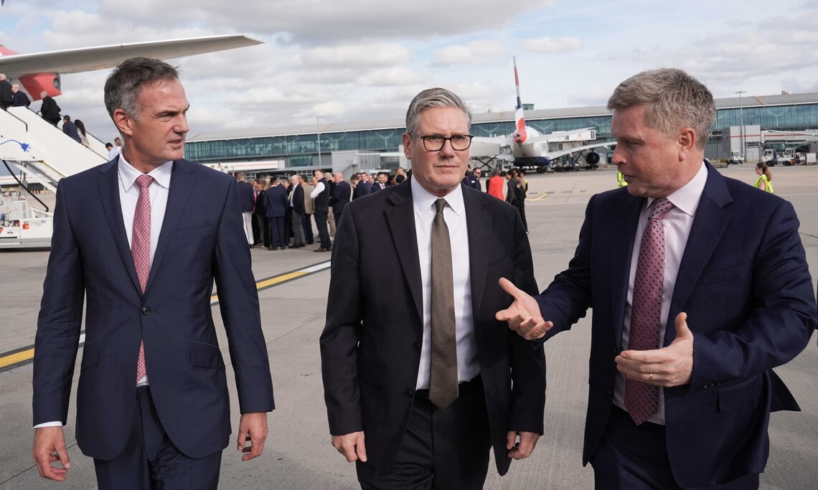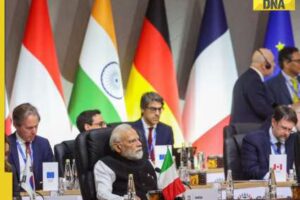
MUMBAI – British Prime Minister Keir Starmer said he would resist demands from business to allow more highly skilled workers from India to come to Britain following a free trade agreement (FTA) between the two countries.
Speaking to journalists on a flight to Mumbai, where he is due to tout the trade deal signed in July, Mr Starmer said it “isn’t part of the plans” to open up more visa spots for Indian workers.
He is joined on the trip by 125 business and cultural leaders, several of whom have warned Britain that its efforts to restrict overseas workers coming to the UK risk creating a labour shortage.
“The visa situation hasn’t changed with the free trade agreement – we didn’t open up more visas,” Mr Starmer said.
“The issue is not about visas – it’s about business-to-business engagement and investment and jobs and prosperity coming into the United Kingdom.”
As part of the UK-India FTA, both countries agreed to lock in pre-existing measures that allowed temporary business travel between the two nations.
No new visa routes were created in the agreement, Mr Starmer said, adding that his government had been able to “unblock” the issue that had previously held up talks as India demanded a greater visa allowance for its nationals wanting to work in the UK.
Mr Starmer’s government is under pressure to limit the number of people arriving in the country, as the anti-migrant Reform UK has surged in the polls.
Mr Starmer has proposed measures such as lengthening the time a person must live in the country before they can claim indefinite leave to remain, and making their ability to gain that status contingent on their “contribution” to Britain.
Some worry that this will deter talented workers from coming to the country, prompting them instead to seek a job in a country that has a clearer and simpler path to settlement.
The Confederation of British Industry, whose chief executive Rain Newton-Smith was on the trip to Mumbai, has said migration is needed to solve some of Britain’s labour shortages.
Standard Chartered CEO Bill Winters, who was also part of the delegation, has previously warned that immigration restrictions would have a negative impact on London’s talent pool.
When asked whether Britain would try to attract some of the top-skilled people who might have been put off applying for work in the US due to President
Donald Trump’s decision to hike visa costs
, Mr Starmer said that “where there is very top talent across the globe, I want to have top talent in the United Kingdom, to help us grow our economy”.
He declined to elaborate on how Britain would attract these people.
Bloomberg has previously reported that the government is drawing up plans for a special visa for foreigners who invest significant sums in Britain.
One group that has been leaving Britain, according to several datasets, is the ultra-wealthy – after Labour removed some tax breaks given to so-called non-domiciled residents.
When asked whether he was worried about the number of wealthy people leaving, Mr Starmer replied, “No.”
“We keep a careful eye on the figures,” he told reporters, adding that the changes to the non-doms’ tax status “are bringing a considerable amount of revenue into the government, which is being used to fix things” such as the National Health Service.
Mr Starmer’s government is also under pressure to return migrants who arrived in Britain and committed crimes.
Britain has dedicated agreements with just over 20 countries to return foreign criminals and is trying to increase that number to reduce the pressure on its own prisons.
“We are looking at whether there should be a link between visas and returns agreements,” Mr Starmer said, adding that this was not an issue with India because the two countries already have a returns’ agreement. BLOOMBERG
TradeKeir StarmerNarendra ModiImmigration laws





